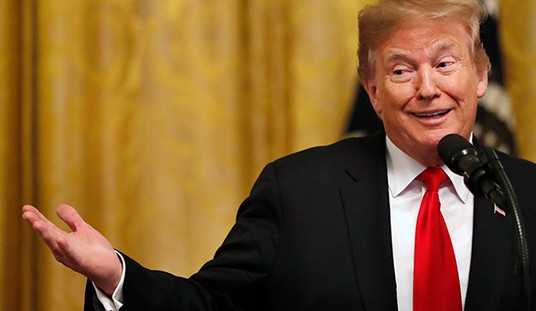Late last week I had the opportunity to interview Texas Sen. Dan Patrick (R-Houston). Patrick is one of four candidates running for lieutenant governor of Texas, an office that presides over the Texas Senate and is constitutionally the most powerful in the state. When he isn’t casting votes in the state Senate, Patrick also hosts a popular radio show on KSEV 700 AM in Houston.
[jwplayer config=”pjm_tatler” mediaid=”142794″]
As has been the case with the previous three lieutenant governor candidate interviews, there were no rules and no questions were arranged ahead of time. That precedent was set in the initial interview, with incumbent Lt. Gov. David Dewhurst, and speaks well of all of the candidates and their campaigns.
I caught up with Sen. Patrick the day after a debate among the candidates, so I opened up the questioning to get his take on that debate.
On the issues, Patrick is succinct: “We need a new lieutenant governor with energy and passion, to finish the job that conservative grassroots voters want us to do. We’ve done a lot of good things,” he says, adding that he has cast 16,000 votes in the Texas Senate to forward the conservative cause. Patrick then ticks through a list of his issue priorities for Texas. “Border security, sanctuary cities, end in-state tuition (for illegal aliens), school choice, reduce property taxes, focus on our infrastructure, end diversion (of state highway funds)” are the issues that Patrick listed.
Patrick is also proposing a rule change in the Texas Senate that would speed conservative bills through the body. The state Senate has 31 seats, 19 of which are held by Republicans. (That number may rise to 20 now that state Sen. Wendy Davis is running for governor.) But it takes 21 votes to move a bill to a vote during a regular legislative session.
“With 19 that we currently had last session, with every bill, we needed two Democrats. They either block the bill or water it down. I’ve been fighting against the 21-vote rule since I was elected,” Patrick says, noting that senators favoring the change have grown over the years, and as lieutenant governor, he would end that rule and bring the regular legislative session into parity with special sessions, during which only a majority vote is needed to move a bill to the floor for a vote. He blamed the 21-vote rule for forcing the legislature into numerous special sessions.
Patrick blasts the controversial CSCOPE educational curriculum, and Washington’s Common Core, and says he favors legislation to make sure that the latter cannot be imposed by a future state governor.
Patrick was in the Texas Senate on the night of state Sen. Wendy Davis’ filibuster of the abortion bill, and says that he knew that night that he would have to run for lieutenant governor to provide new leadership. “It [the filibuster] shouldn’t have happened,” Patrick says. He adds that the Democrats are welcome to run on late-term abortion, because they will not win on that issue, and it may turn many Texas Hispanics into Republicans. Patrick says “the mask was pulled back that night” on the Democrats’ line that abortion should be safe, legal and rare. The bill that Davis filibustered would have fulfilled all three principles, but her opposition to it made her a national star among those very Democrats.
Patrick pledged to keep the campaign positive, while pointing out differences between himself and the other candidates. “All the other three candidates in this race, none of them have opposed in-state tuition. I’m the only one who has taken legislative action to do so,” Patrick says. He has also sounded the same note with his first campaign ad, which drew sharp reactions from the other candidates and the media. That’s sure to be a flash point going forward. Watch the full interview above.
This interview concludes our series on the Republican candidates for Texas lieutenant governor. See our interview with Lt. Gov. David Dewhurst here, Land Commissioner Jerry Patterson here, and Agriculture Commissioner Todd Staples here.









Join the conversation as a VIP Member